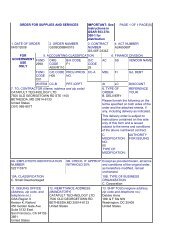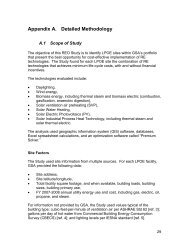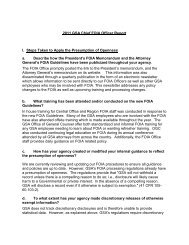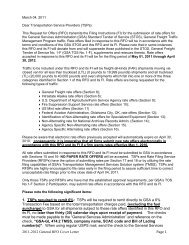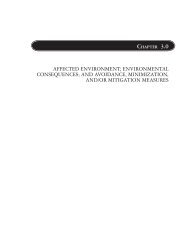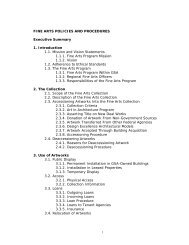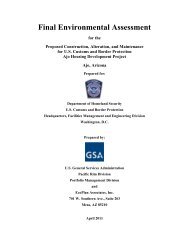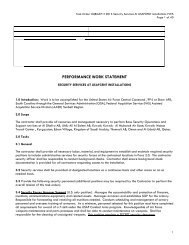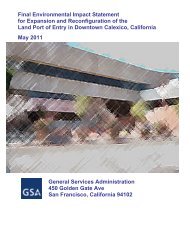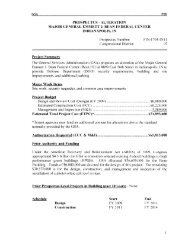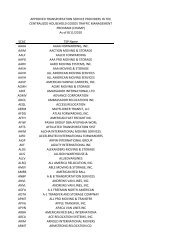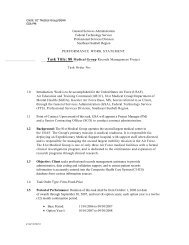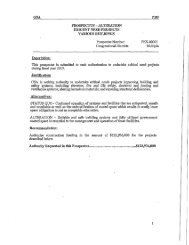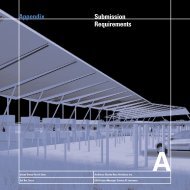Sustainable Development and Society - GSA
Sustainable Development and Society - GSA
Sustainable Development and Society - GSA
Create successful ePaper yourself
Turn your PDF publications into a flip-book with our unique Google optimized e-Paper software.
<strong>Sustainable</strong> <strong>Development</strong> <strong>and</strong> <strong>Society</strong><br />
products (pursuant to the three safeties<br />
concept).<br />
• Overall, KP has focused on phasing out<br />
the use of PVC, eliminating the<br />
presence of mercury, increasing<br />
recycled content, reducing waste<br />
volumes, <strong>and</strong> demonstrating a<br />
preference for least toxic chemicals.<br />
• KP is methodically removing DEHP<br />
from products in neonatal units.<br />
<strong>Sustainable</strong> Operations<br />
In 2003, approximately 8,000 tons of solid<br />
wastes were diverted from l<strong>and</strong>fills. KP’s<br />
overall waste volume reduction is now 30%.<br />
• In 2003, 65,500 pieces of electronic<br />
equipment were reused within KP, redeployed<br />
outside of KP, or ultimately<br />
recycled, through a partnership with<br />
Redemtech.<br />
• In the last few years, 100 tons of singleuse<br />
devices were reprocessed.<br />
• KP has eliminated the purchase <strong>and</strong><br />
disposal of 40 tons of hazardous<br />
chemicals through finding safer<br />
alternatives <strong>and</strong> recycling solvents.<br />
• 27,000 grams of mercury have been<br />
eliminated from KP health care<br />
operations through the phase-out of<br />
mercury-containing blood pressure<br />
devices, thermometers, <strong>and</strong> GI<br />
equipment. KP’s goal is to be virtually<br />
mercury free by the end of 2004.<br />
KP wants to pursue their work from a<br />
solution-focus.<br />
Kaiser Permanente Medical Center, San Francisco<br />
(Photo: Kaiser Permanente)<br />
KP’s new chemical policy (still under<br />
development at the time this paper was<br />
submitted) will call for avoiding the use of<br />
carcinogens, mutagens, <strong>and</strong> reproductive<br />
toxins (CMRs) <strong>and</strong> persistent<br />
bioaccumulative toxic chemicals (PBTs).<br />
Clearly, it will be a long time before these<br />
chemicals can be avoided entirely. But KP’s<br />
policy will signal the marketplace that<br />
innovation <strong>and</strong> change are necessary, <strong>and</strong><br />
they will demonstrate a preference for<br />
manufacturers who provide cleaner<br />
products that meet the organization’s<br />
quality <strong>and</strong> cost imperatives.<br />
What the Future Holds:<br />
KP’s’ Environmental Stewardship Council is<br />
pursuing two bold initiatives in addition to<br />
the current work:<br />
Chemical Policy: Rather than continuing<br />
to take an approach that is problemfocused<br />
(e.g., eliminating mercury,<br />
eliminating PVC, eliminating incineration),<br />
Food Policy: A new policy on food will<br />
support healthy food systems in health<br />
care. Specifically, that means supporting<br />
food systems that are ecologically sound,<br />
economically viable, <strong>and</strong> socially<br />
responsible. As a start, KP has farmers’<br />
markets in operation at five medical centers<br />
in California <strong>and</strong> Hawaii, with plans to<br />
exp<strong>and</strong> to additional centers in 2004. The<br />
food policy is a way to encompass the widereaching<br />
aspects of food, including<br />
87



